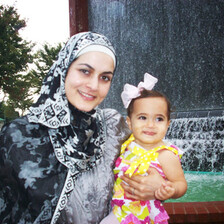Al Jazeera 9 July 2005

Biilin has become famous for its non-violent demonstrations against the wall. Last week, protesters placed themselves in mock cages to symbolise how their village was becoming a prison. (IMC)
A Palestinian boy was shot dead by an Israeli security guard in the West Bank, officials and witnesses said. Fifteen-year-old Muheeb Ahmad Assi was pronounced dead at the scene after being shot by an Israeli security guard, according to Mohammad Hawani of the Sheikh Zayed Hospital in Ramallah.
Hawani said Assi died of a bullet wound to his chest. Witnesses said clashes broke out between Assi’s group of friends and an Israeli security guard near a part of the separation barrier in the village of Beit Lakiya, where he lived.
The guard shot at them with live ammunition, and Assi was hit. Palestinians were not allowed near the teen until over an hour had passed, by which point the Assi had bled to death, medics said. Assi was the son of the village’s head of the Popular Committee Against the Wall, Ahmed Assi.
Earlier in the West Bank village of Biilin, 18 people were injured when clashes broke out during a protest held against the separation barrier. Ramzi Yassin, 22, was in a critical condition after a rubber bullet hit his head. He sustained internal bleeding, according to medics at the Ram Allah Government Hospital.
A second Palestinian, Yunis Hsayn, 21, was in a stable condition after a rubber bullet was removed from his stomach during surgery, hospital officials told Aljazeera.net. Witnesses at the protest confirmed the account.
Injuries
“After Friday prayers, Palestinian shabab (youth) began throwing stones at soldiers off the side of the demonstration. “Twenty minutes later, the soldiers began using tear gas, rubber bullets, sound bombs, and stones were thrown again. 18 people were injured,” said ISM activist Linda M, who asked her full identity be concealed.
The demonstration comes on the first anniversary of the International Court of Justice (ICJ) ruling that declared Israel’s separation barrier illegal.
After Israeli courts refused appeals to prevent the wall’s construction, the Palestinians of Biilin – along with Israeli and foreign activists - began peacefully protesting the confiscation of their land. They have held over 45 non-violent demonstrations since February 2005.
Friday’s demonstration was attended by Palestinian parliament representatives and ministers, Israeli Knesset members, representatives from the Palestinian National and Islamic parties, along with international and Israeli supporters.
“Our message, simply, is ‘no to the barrier’ “, Abdallah Abo-Rahma, founder of the Popular Committee Against the Wall in Biilin told Aljazeera.net.
Non-violent demonstrations
Biilin has become famous for its non-violent demonstrations against the wall. Last week, protesters placed themselves in mock cages to symbolise how their village was becoming a prison.
“Every protest has to have a goal and a new theme so the world can see that there is a small village in Ram Allah whose land is being annexed and that is being oppressed.
“We try to use new methods of resistance and try to carry the message to regular Israelis to show them that we don’t hate them: I am a Palestinian who does not hate human beings, only oppression and occupation,” said Abo-Rahma, who has been detained by the Israeli secret service for his involvement in the protests.
Livelihood destroyed
Abo-Rahma says the wall is destroying the village’s very livelihood, and accuses the Israeli government of following a policy of indirect transfer of the villagers to make room for new settlements.
“The wall is a catastrophe that has fallen on our village, and on our people as a whole. It takes half the land of our village. Our village is small so when it takes half the land, there is not much left. The only land we have left is the land with our houses on it,” he said. The wall will isolate more than 60% of the lands of Biilin, if completed, according to the Popular Committee Against the Wall.
Leila M. El-Haddad is a journalist based in the Gaza Strip. This article was originally published by aljazeera.net and reprinted on EI permission.
Related Links





